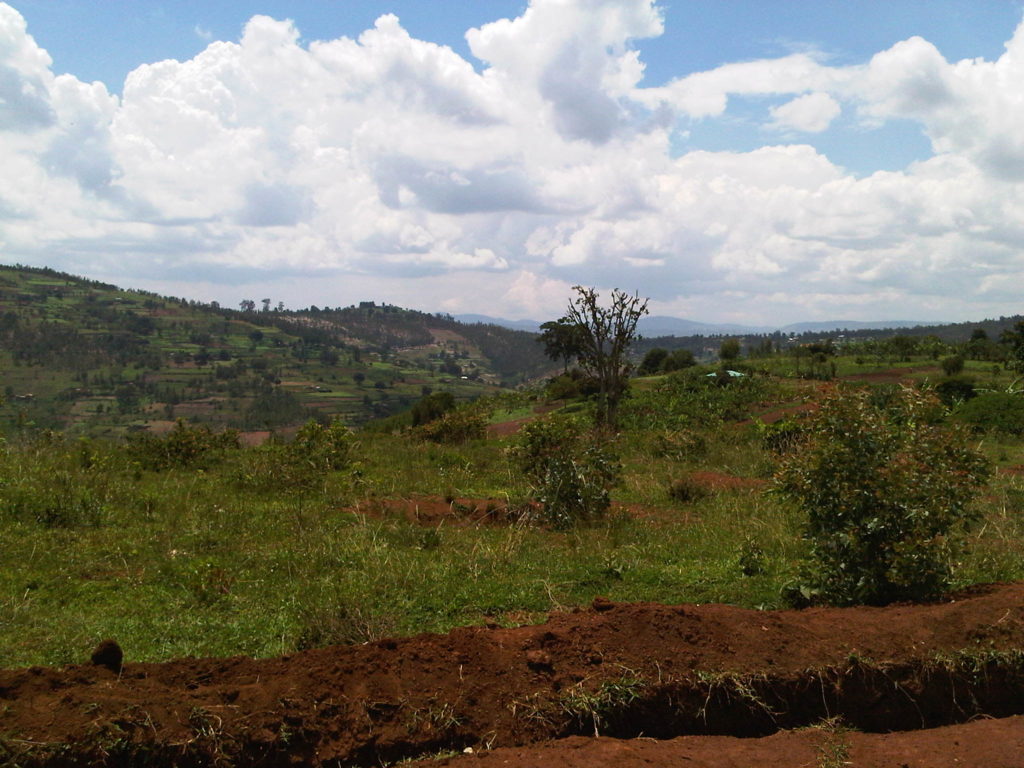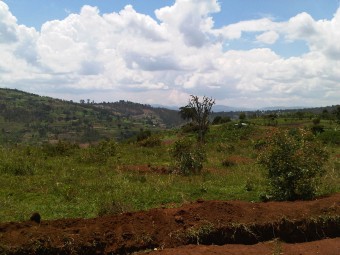
Protect young Genocide survivors’ inheritance rights.
Editorial, The New Times.
August 10, 2013.
Members of a taskforce set up by the Prime Minister to come to the bottom of thousands of cases of injustice suffered by Genocide survivors have their work cut up for them.
The cases are mostly linked to property left behind by victims of the 1994 Genocide against the Tutsi, whose rightful beneficiaries – most of whom were still infants – were given raw deals by their adult guardians or local leaders.
The children are now adults who suddenly discover that their parents owned property, but the people who they looked up to for help and guidance, instead preyed on their vulnerability and grabbed the property.
Now close to two decades down the road, some property has changed hands several times and unraveling the mess will not be an easy task, but a solution has to be sought. If possible, a list of shame should be compiled and made public for all to see where compassion was replaced by greed.
The children suffered irreparable traumatic damage when they lost their parents, sometimes in front of their eyes. Add on the baggage of living a destitute life yet what is rightfully yours is being exploited by unscrupulous relatives, there you have a recipe for psychological disaster.
The saying; ‘better late than never’ duly describes the current situation, but at least there is light at the end of the survivors’ tunnel.
Taskforce on survivors’ land disputes get new mandate.
By Jean de la Croix Tabaro, The New Times.
August 09, 2013.
The taskforce set up by the Prime Minister in January to investigate alleged land-related injustice meted out to young Genocide survivors has now been mandated to follow up on the implementation of the recommendations contained in a report the team submitted to the premier in April.
A nine-person taskforce, chaired by Deputy Ombudsman Bernadette Kanzayire, in April submitted to Prime Minister Pierre Damien Habumuremyi a report with findings from all districts where the team investigated property wrangles, mainly land related.
The cases, among others, involve property that was awarded to survivors through Gacaca courts, and young survivors, whose inherited property was either misused or grabbed by former guardians.
In some cases, government is said to have encroached on survivors’ property in the process to provide infrastructures such as roads.
According to the inquiry report, the taskforce, during a countrywide tour earlier in the year, identified 1,200 cases. Out of these, the team was able to settle 300 and made recommendations on how the other 900 would be addressed.
Despite the recommendations, however, there has been little progress to solve the pending cases and even executing the decisions made with regard to the mitigated cases.
The task to follow up on these cases had principally been assigned to districts.
“Our immediate task is to reach out to the districts to see which ones still have a problem so that we can support them. What is however certain is that progress has really been slow, almost four months after we submitted our report,” Kanzayire told The New Times, without divulging how many decisions had been enforced so far.
She said that in mid August, they are expecting progress reports from the districts, after which they would determine the way forward.
The Prime Minister asked that these issues must be settled by November this year and urged collaboration amongst all actors, including the taskforce, local leaders and the citizenry to ensure the exercise is conducted openly and smoothly, according to Kanzayire.
In Nyamagabe, one of the districts with many cases (74), Emile Byiringiro, the vice mayor in charge of social affairs said that so far, 32 cases had been resolved, but not all of the decisions had been enforced.
“For us, when a conclusion is drawn on a particular case, we consider it solved. Enforcement is another issue which we will deal with in the not-so-distant future,” he told The New Times.
Unscrupulous trustees
Disputes surrounding Genocide survivors’ properties became a national concern after complaints involving young survivors accumulated, since these orphans increasingly attaining majority age and failed to recover what was left behind by their parents.
The inquiry highlighted several examples of property wrangles that emerged after affected orphans sought to reclaim what rightly belonged to them.
One such case was recorded in Rugando sector, Gasabo District in Kigali, where a 10-hectare piece land, which belonged to a Genocide orphan, Josianne Uwonkunda, now 23, was split into several plots by her aunt.
These pieces of land were subsequently sold to several developers and family owners, most of them oblivion to the truth about their ownership.
Uwonkunda, who was only three years old during the Genocide, is the only survivor in a family of nine.
She was brought up by her grandmother in Kamonyi District in Southern Province.
In the aftermath of the Genocide, her paternal aunt, Anne Marie Mukaperezida, allegedly grabbed the land in question and proceeded to subdivide it into smaller plots before she sold them to different people.
She did not tell the child that there was property left behind by her parents, the taskforce said in its report.
It was not until 2010 that Uwonkunda learnt about the land, which is strategically located, and could be worth tens, if not hundreds, of millions at the current market price.
Uwonkunda, according to the inquiry, only started to know about this land when a city judge who had previously bought a part of it sold his piece of land.
She increasingly collected more and more information from neighbours.
Subsequently Uwonkunda started seeking justice from the grassroots, until she took her case up to the City of Kigali and later the Office of the Ombudsman. Gasabo District later offered to give her another piece of land in exchange for what she lost.
She agreed to the solution in principle.
The taskforce helped mediate between Uwonkunda and some of the settlers, with one man paying her Rwf5 million.
But some of the owners are adamant.
According to article 22 of the succession law, the succession order starts with children of the deceased, then the parents, then brothers and sisters of the deceased, while step brothers are fourth in line of succession.

